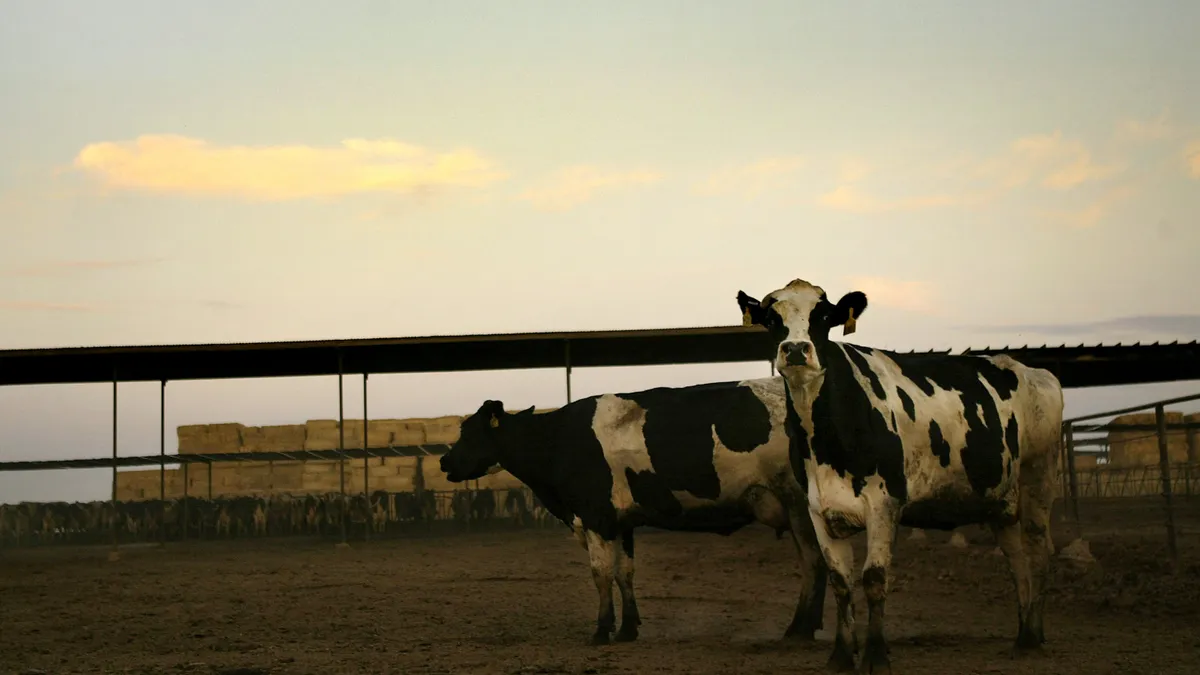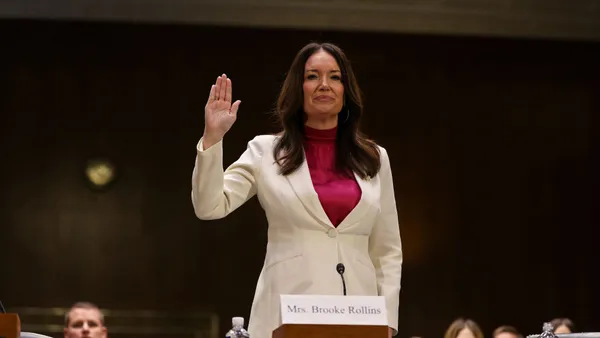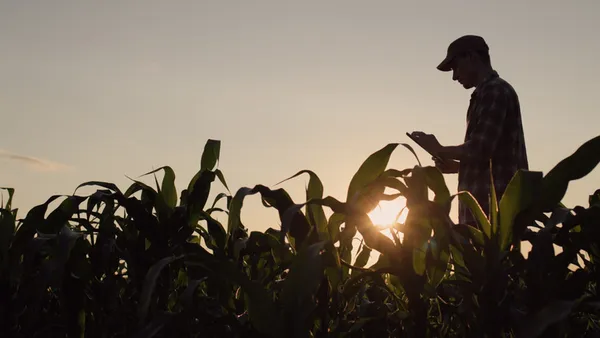Dive Brief:
-
The U.S. announced a $200 million plan on Friday to step up bird flu testing and enhance biosecurity measures on dairy farms as public health experts call for a more coordinated response to prevent the virus from moving to humans.
-
The plan includes $100 million from the Agriculture Department encouraging dairy farms impacted by bird flu to implement biosecurity measures and take action to prevent the spread of the virus. Collectively, each affected location is eligible for up to $28,000 over the next 120 days.
-
Additionally, the Department of Health and Human Services will spend approximately $100 million to scale up contact tracing efforts, wastewater surveillance and vaccine research.
Dive Insight:
The USDA is providing a range of financial incentives to help increase biosecurity and cover veterinary fees plus costs associated with sample collecting and testing.
Funding includes $2,000 per affected premises per month to make face masks and other personal protection equipment available as part of a worker health study. Producers can also receive compensation for implementing effective biosecurity plans and establishing heat treatment systems to safely dispose of milk.
“We want to make sure that we are doing what is necessary to provide producers on the ground with the most available and most scientific information and direction,” Agriculture Secretary Tom Vilsack said in a statement Friday.
Nine states have reported at least one detection of the virus across 42 dairy herds, according to an online tracker from the USDA as of May 13. The department said it will work with states as they consider movement restrictions on lactating cattle and soon begin offering payments to offset losses in milk production due to the virus.
At this stage, Vilsack said there is no concern about the safety of the commercial milk and beef supplies, and the USDA continues to see affected cows recover from treatment with few deaths being reported.
Lawmakers and public health experts, however, have called for a more coordinated, whole-of-government response to the outbreak to ensure that the virus doesn't mutate and spread to humans.











